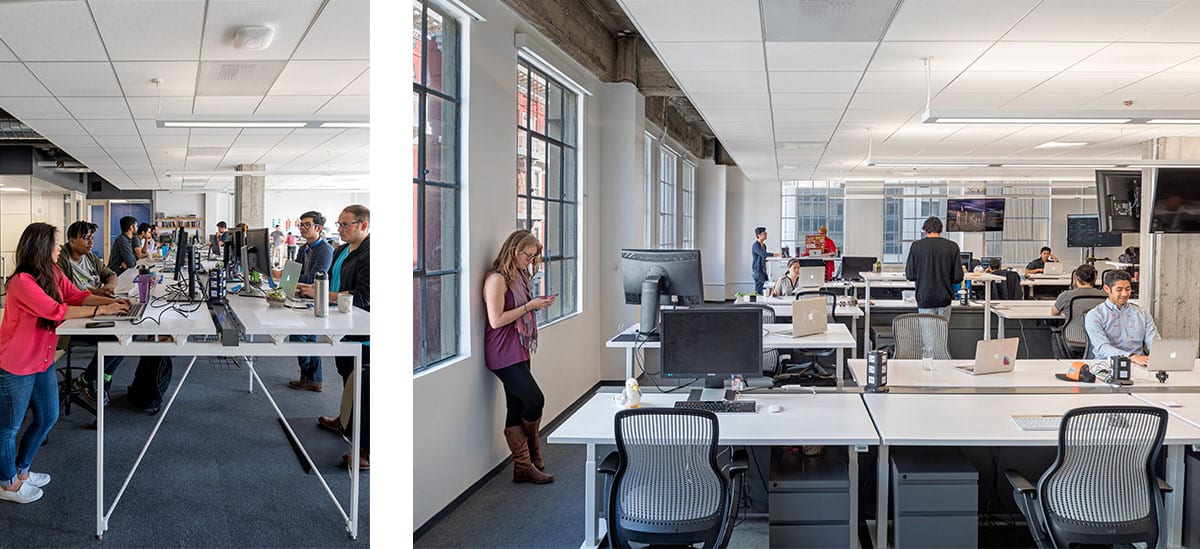07 Sep
The Role of Design in Attracting Talent
The article details how companies focusing on space utilization and the employee experience are ahead of the design curve.
The modern tech-enabled workplace features seamless technology connections from room to room, according to Doug Mehl, principal at San Francisco-based architecture and design firm FENNIE+MEHL, which often designs for tech companies. Employees want to walk into a meeting space and automatically connect without a ton of wires hindering their speed, Mehl said. And as more and more people work remotely or across different office locations, the strong AV connections are essential for streamlining business flow, he added.
Physically speaking, “the office has become much more casual and less institutional than a few years ago.” For example, the amount of square footage devoted to an individual’s workstation or office is much smaller. In many cases, for every workstation seat, there’s a separate place in the office for employees to go, whether it’s a conference room, collaboration area, or casual seating area.
Enclosed rooms that fit only a few people are also becoming more popular, said the firm’s senior designer Jenna Ruth. “It’s a place where you go if need to make a phone call or have a quick one-on-one,” she added. “Having that space has become really important.”
Read the full post on TechRepublic.

